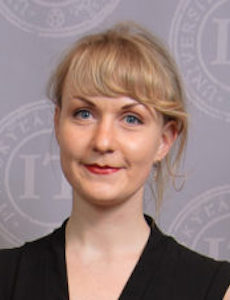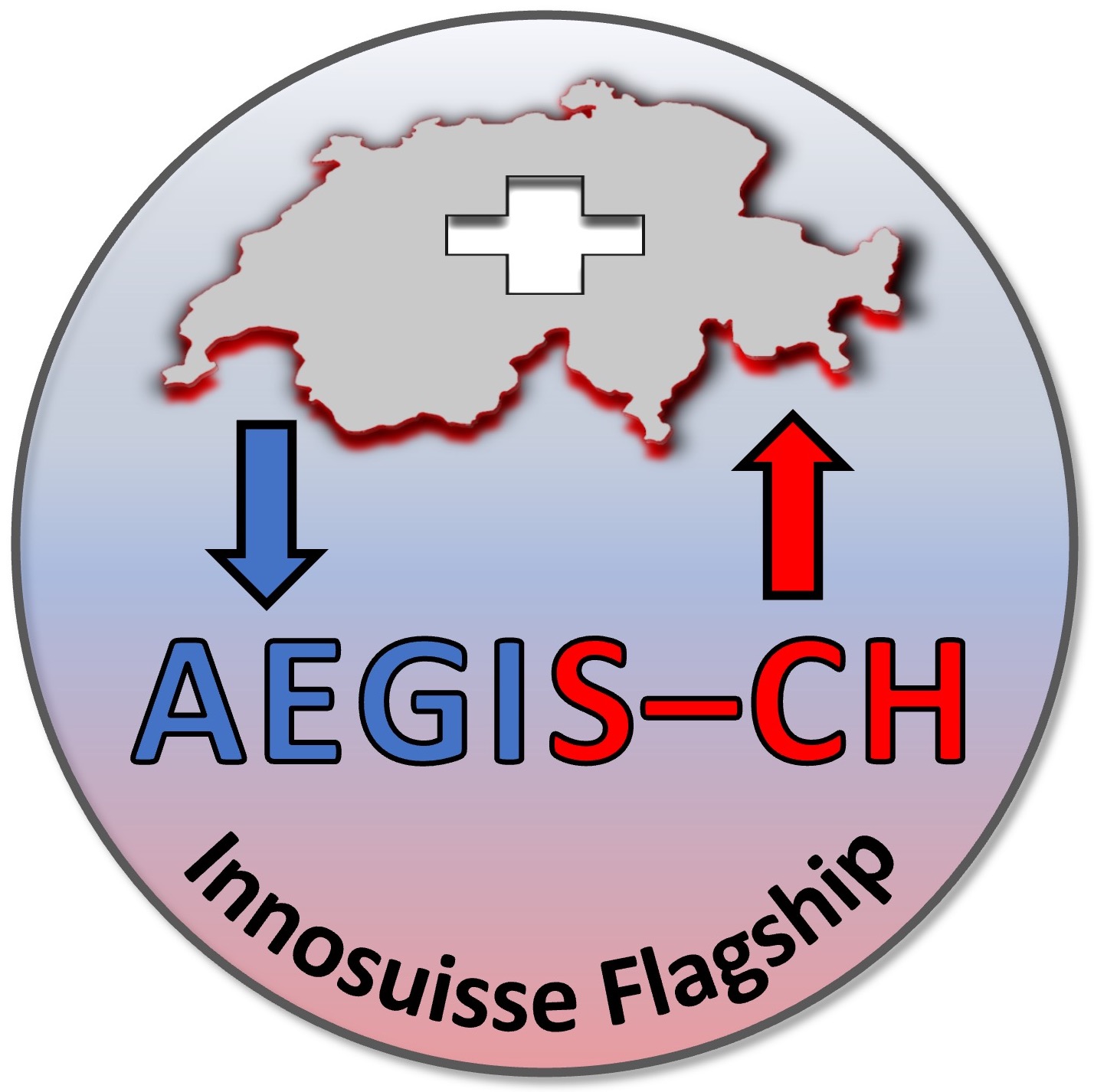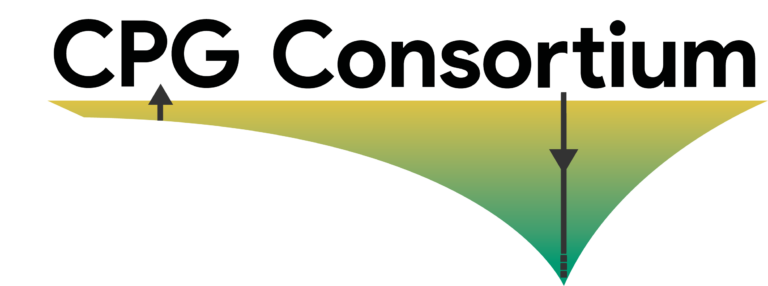
Mailing Address
Dr. Svetlana Kyas (Matculevich)
Geothermal Energy & Geofluids
Institute of Geophysics
NO F 61
Sonneggstrasse 5
CH-8092 Zurich Switzerland
Contact
| Phone | +41 44 632 4710 |
| matcules(at)ethz.ch |
Administration
| Dominique Ballarin Dolfin | |
| Phone | +41 44 632 3465 |
| ballarin(at)ethz.ch | |
Publications
[Go to Proceedings Refereed] [Go to Proceedings Non-Refereed] [Go to Theses]
Underlined names are links to current or past GEG members
REFEREED PUBLICATIONS IN JOURNALS
16.
Hauser, J., G. Dan Miron, S. Kyas, A. M. M. Leal, and J. Gunning, Towards a Model Based Interpretation of Measurements of Mineral and Chemical Compositions, Mathematical Geosciences, 2022. [View Abstract]Expanding upon on the frequent use of reactive transport models to understand processes related to the formation of hydrothermal alteration zones and mineral deposits we introduce here a methodology that allows to infer the fluid composition from measurements of mineralogical or chemical compositions. An expectation maximisation algorithm is
deployed to objectively solve the joint problem of identifying alteration zones in the measured data and estimating the fluid composition based on the fit between the mineral abundances in the measured and predicted alteration zones. Using Greisenisation, the hydrothermal alteration of Granite as a test case we present a range of synthetic tests to illustrate how our methodology allows for objective inference of the mineralising fluid. For the East Kemptville tin deposit in Nova Scotia, our from
normative mineral compositions made inference about the fluid composition compares favourably with previous independent estimates, thereby demonstrating the feasibility of the proposed calibration methodology.
15.
Kyas, S., D. Volpatto, M.O. Saar, and A.M.M. Leal, Accelerated reactive transport simulations in heterogeneous porous media using Reaktoro and Firedrake, Computational Geosciences, 26, pp. 295-327, 2022. https://doi.org/10.1007/s10596-021-10126-2 [Download] [View Abstract]This work investigates the performance of the on-demand machine learning (ODML) algorithm introduced in Leal et al. (2020) when applied to different reactive transport problems in heterogeneous porous media. This approach was devised to accelerate the computationally expensive geochemical reaction calculations in reactive transport simulations. We demonstrate that even with strong heterogeneity present, the ODML algorithm speeds up these calculations by one to three orders of magnitude. Such acceleration, in turn, significantly advances the entire reactive transport simulation. The performed numerical experiments are enabled by the novel coupling of two open-source software packages: Reaktoro (Leal, 2015) and Firedrake
(Rathgeber et al., 2016). The first library provides the most recent version of the ODML approach for the chemical equilibrium calculations, whereas, the second framework includes the newly implemented conservative Discontinuous Galerkin finite element scheme for the Darcy problem, i.e., the Stabilized Dual Hybrid Mixed (SDHM) method (Núñez et al., 2012).
14.
Leal, A.M.M., S. Kyas, D. Kulik, and M.O. Saar, Accelerating Reactive Transport Modeling: On‑Demand Machine Learning Algorithm for Chemical Equilibrium Calculations, Transport in Porous Media, 133, pp. 161-204, 2020. https://doi.org/10.1007/s11242-020-01412-1 [Download] [View Abstract]During reactive transport modeling, the computing cost associated with chemical equilibrium calculations can be 10 to 10,000 times higher than that of fluid flow, heat transfer, and species transport computations. These calculations are performed at least once per mesh cell and once per time step, amounting to billions of them throughout the simulation employing high-resolution meshes. To radically reduce the computing cost of chemical equilibrium calculations (each requiring an iterative solution of a system of nonlinear equa-tions), we consider an on-demand machine learning algorithm that enables quick and accu-rate prediction of new chemical equilibrium states using the results of previously solved chemical equilibrium problems within the same reactive transport simulation. The training operations occur on-demand, rather than before the start of the simulation when it is not clear how many training points are needed to accurately and reliably predict all possible chemical conditions that may occur during the simulation. Each on-demand training opera-tion consists of fully solving the equilibrium problem and storing some key information about the just computed chemical equilibrium state (which is used subsequently to rap-idly predict similar states whenever possible). We study the performance of the on-demand learning algorithm, which is mass conservative by construction, by applying it to a reactive transport modeling example and achieve a speed-up of one or two orders of magnitude (depending on the activity model used). The implementation and numerical tests are car-ried out in Reaktoro (reakt oro.org), a unified open-source framework for modeling chemi-cally reactive systems.
13.
Kyas, S., S. Repin, J. M. Nordbotten, and K. Kumar, Guaranteed and computable error bounds for approximations constructed by an iterative decoupling of the Biot problem, Computers & Mathematics with Applications, 91, pp. 122-149, 2020. https://doi.org/10.1016/j.camwa.2020.05.005 [Download] [View Abstract]The paper is concerned with guaranteed a posteriori error estimates for a class of evolutionary problems related to poroelastic media governed by the quasi-static linear Biot equations. The system is decoupled by employing the fixed-stress split scheme, which leads to an iteratively solved semi-discrete system. The error bounds are derived by combining a posteriori estimates for contractive mappings with the functional type error control for elliptic partial differential equations. The estimates are applicable to any approximation in the admissible functional space and are independent of the discretization method. They are fully computable, do not contain mesh-dependent constants, and provide reliable global estimates of the error measured in the energy norm. Moreover, they suggest efficient error indicators for the distribution of local errors and can be used in adaptive procedures.
12.
Kyas, S., U. Langer, and S. Repin, Adaptive space-time isogeometric analysis for parabolic evolution problems, Space-Time Methods: Applications to Partial Differential Equations, Radon Series on Computational and Applied Mathematics, pp. 141-184, 2019. https://doi.org/10.1515/9783110548488-005 [Download] [View Abstract]The paper proposes new locally stabilized space-time Isogeometric Analysis approximations to initial boundary value problems of the parabolic type. Previously, similar schemes (but weighted with a global mesh parameter) has been presented and studied by U. Langer, M. Neumüller, and S. Moore (2016). The current work devises a localized version of this scheme, which is suited for adaptive mesh refinement. We establish coercivity, boundedness, and consistency of the corresponding bilinear form. Using these fundamental properties together with standard approximation error estimates for B-splines and NURBS, we show that the space-time Isogeometric Analysis solutions generated by the new scheme satisfy asymptotically optimal a priori discretization error estimates. Error indicators used for mesh refinement are based on a posteriori error estimates of the functional type that has been introduced by S. Repin (2002) and later rigorously studied in the context of Isogeometric Analysis by U. Langer, S. Matculevich, and S. Repin (2017). Numerical results discussed in the paper illustrate an improved convergence of global approximation errors and respective error majorants. They also confirm the local efficiency of the error indicators produced by the error majorants.
11.
Kyas, S., S. Repin, and U. Langer, Space-Time Isogeometric Analysis of Parabolic Diffusion Problems in Moving Spatial Domains
, Proceedings in Applied Mathematics and Mechanics (PAMM), 22, 2019. https://doi.org/10.1002/pamm.201900504 [Download] [View Abstract]This paper is devoted to locally stabilized space-time isogeometric (IgA) schemes for parabolic diffusion problems in moving spatial domains. It generalizes the results of our preceding works for problems in fixed spatial domains. We present functional a posteriori error estimates and study adaptive numerical procedures based on them and on truncated hierarchical B-splines.
10.
Kyas, S., U. Langer, and S. Repin, Guaranteed error bounds and local indicators for adaptive solvers using stabilized space-time IgA approximations to parabolic problems
, Computers and Mathematics with Applications, 78/8, pp. 2641-2671, 2019. https://doi.org/10.1016/j.camwa.2019.04.009 [Download] [View Abstract]The paper is concerned with space-time IgA approximations to parabolic initial-boundary value problems. We deduce guaranteed and fully computable error bounds adapted to special features of such type of approximations and investigate their efficiency. The derivation is based on the analysis of the corresponding integral identity and exploits purely functional arguments in the maximal parabolic regularity setting. The estimates are valid for any approximation from the admissible
(energy) class and do not contain mesh-dependent constants. They provide computable and fully guaranteed error bounds for the norms arising in stabilised space-time approximations. Furthermore, a posterior error estimates yield efficient error indicators enhancing the performance of adaptive solvers. Theoretical results are verified on a series of numerical examples, in which approximate solutions and auxiliary fluxes are recovered by IgA techniques. The mesh refinement algorithm is governed by local error indicators that naturally follow from the global
error majorants. The numerical results confirm high efficiency of the method in the context of the two main goals of a posteriori error analysis: estimation of global errors and mesh adaptation.
9.
Matculevich, S., and M. Wolfmayr, On the a posteriori error analysis for linear Fokker-Planck models in convection-dominated diffusion problems, Applied Mathematics and Computation, 339, pp. 779-804, 2018. https://doi.org/10.1016/j.amc.2018.05.050 [Download] [View Abstract]This work is aimed at the derivation of reliable and efficient a posteriori error estimates for convection-dominated diffusion problems motivated by a linear Fokker–Planck problem appearing in computational neuroscience. We obtain computable error bounds of functional type for the static and time-dependent case and for different boundary conditions (mixed and pure Neumann boundary conditions). Finally, we present a set of various numerical examples including discussions on mesh adaptivity and space-time discretisation. The numerical results confirm the reliability and efficiency of the error estimates derived.
8.
Holm, B., and S. Matculevich, Fully reliable error control for evolutionary problems, Comput. Math. Appl. (CAMWA), 75/4, pp. 1302-1329, 2018. https://doi.org/10.1016/j.camwa.2017.11.008 [Download] [View Abstract]This work is focused on the application of functional-type a posteriori error estimates and corresponding indicators to a class of time-dependent problems. We consider the algorithmic part of their derivation and implementation and also discuss the numerical properties of these bounds that comply with obtained numerical results. This paper examines two different methods of solution approximation for evolutionary models, i.e., a time-marching technique and a space–time approach. The first part of the study presents an algorithm for global minimisation of the majorant on each of discretisation time-cylinders (time-slabs), the effectiveness of this approach to error estimation is confirmed by extensive numerical tests. In the second part of the publication, the application of functional error estimates is discussed with respect to a space–time approach. It is followed by a set of extensive numerical tests that demonstrates the efficiency of proposed error control method.
The numerical results obtained in this paper rely on the implementation carried out using open source software, which allows formulating the problem in a weak setting. To work in a variational framework appears to be very natural for functional error estimates due to their derivation method. The search for the optimal parameters for the majorant is done by a global functional minimisation, which to the authors’ knowledge is the first work using this technique in an evolutionary framework.
7.
Matculevich, S., Functional approach to the error control in adaptive IgA schemes for elliptic boundary value problems, Journal of Computational and Applied Mathematics, 344, pp. 394-423, 2018. https://doi.org/10.1016/j.cam.2018.05.029 [Download] [View Abstract]This work presents a numerical study of functional type a posteriori error estimates for IgA approximation schemes in the context of elliptic boundary-value problems. Along with the detailed discussion of the most crucial properties of such estimates, we present the algorithm of a reliable solution approximation together with the scheme of an efficient a posteriori error bound generation. In this approach, we take advantage of B-(THB-) spline’s high smoothness for the auxiliary vector function reconstruction, which, at the same time, allows to use much coarser meshes and decrease the number of unknowns substantially. The most representative numerical results, obtained during a systematic testing of error estimates, are presented in the second part of the paper. The efficiency of the obtained error bounds is analysed from both the error estimation (indication) and the computational expenses points of view. Several examples illustrate that functional error estimates (alternatively referred to as the majorants and minorants of deviation from an exact solution) perform a much sharper error control than, for instance, residual-based error estimates. Simultaneously, assembling and solving routines for an auxiliary variables reconstruction, which generate the majorant (or minorant) of an error, can be executed several times faster than the routines for a primal unknown.
6.
Matculevich, S., and S. Repin, Estimates for the difference between exact and approximate solutions of parabolic equations on the basis of Poincare inequalities for traces of functions on the boundary, Differential Equations, 52/10, pp. 1355-1365, 2016. https://doi.org/10.1134/S0012266116100116 [Download] [View Abstract]We study a method for the derivation of majorants for the distance between the exact solution of an initial-boundary value reaction-convection-diffusion problem of the parabolic type and an arbitrary function in the corresponding energy class. We obtain an estimate (for the deviation from the exact solution) of a new type with the use of a maximally broad set of admissible fluxes. In the definition of this set, the requirement of pointwise continuity of normal components of the dual variable (which was a necessary condition in earlier-obtained estimates) is replaced by the requirement of continuity in the weak (integral) sense. This result can be achieved with the use of the domain decomposition and special embedding inequalities for functions with zero mean on part of the boundary or for functions with the zero mean over the entire domain.
5.
Matculevich, S., and S. Repin, Explicit constants in Poincaré-type inequalities for simplicial domains and application to a posteriori estimates, Comput. Methods Appl. Math. (CMAM), 16/2, pp. 277-298, 2016. https://doi.org/10.1515/cmam-2015-0037 [Download] [View Abstract]The paper is concerned with sharp estimates of constants in the classical Poincaré inequalities and Poincaré-type inequalities for functions with zero mean values in a simplicial domain or on a part of the boundary. These estimates are important for quantitative analysis of problems generated by differential equations where numerical approximations are typically constructed with the help of simplicial meshes. We suggest easily computable relations that provide sharp bounds of the respective constants and compare these results with analytical estimates (if such estimates are known). In the last section, we discuss possible applications and derive a computable majorant of the difference between the exact solution of a boundary value problem and an arbitrary finite dimensional approximation defined on a simplicial mesh.
4.
Matculevich, S., and S. Repin, Estimates of the distance to the exact solution of parabolic problems based on local Poincare type inequalities, Journal of Mathematical Sciences (New York), 210/6, pp. 759-778, 2015. https://doi.org/10.1007/s10958-015-2588-x [Download] [View Abstract]The goal of the paper is to derive two-sided bounds of the distance between the exact solution of the evolutionary reaction-diffusion problem with mixed Dirichlet-Robin boundary conditions and any function in the admissible energy space. The derivation is based upon special transformations of the integral identity that defines the generalized solution. To obtain estimates with easily computable local constants, the classical Poincaré inequalities and Poincaré type inequalities for functions with zero mean boundary traces are exploited. The corresponding constants were estimated earlier. Bounds of the distance to the exact solution contain only these constants associated with subdomains. It is proved that the bounds are equivalent to the energy norm of the error.
3.
Matculevich, S., P. Neitaanmäki, and S. Repin, A posteriori error estimates for time-dependent reaction-diffusion problems based on the Payne-Weinberger inequality, Discrete Contin. Dyn. Syst. - Series A, 35/6, pp. 2659-2677, 2015. https://doi.org/10.3934/dcds.2015.35.2659 [Download] [View Abstract]We consider evolutionary reaction-diffusion problems with mixed Dirichlet-Robin boundary conditions. For this class of problems, we derive two-sided estimates of the distance between any function in the admissible energy space and the exact solution of the problem. The estimates (majorants and minorants) are explicitly computable and do not contain unknown functions or constants. Moreover, it is proved that the estimates are equivalent to the energy norm of the deviation from the exact solution.
2.
Matculevich, S., and S. Repin, Computable estimates of the distance to the exact solution of the evolutionary reaction-diffusion equation, Appl. Math. Comput., 247, pp. 329-347, 2014. https://doi.org/10.1016/j.amc.2014.08.055 [Download] [View Abstract]We derive guaranteed bounds of distance to the exact solution of the evolutionary reaction-diffusion problem with mixed Dirichlet-Neumann boundary condition. It is shown that two-sided error estimates are directly computable and equivalent to the error. Numerical experiments confirm that estimates provide accurate two-sided bounds of the overall error and generate efficient indicators of local error distribution.
1.
Matculevich, S., P. Neittaanmaki, and S. Repin, Guaranteed error bounds for a class of Picard-Lindelöf iteration methods, Comput. Methods Appl. Sci., 27, pp. 175-189, 2013. https://doi.org/10.1007/978-94-007-5288-7_10 [Download] [View Abstract]This paper deals with a new version of the Picard-Lindelöf method for solving the Cauchy problem
dudt=φ(u(t),t),u(t0)=u0, where the solution u(t) must be found in the interval [t0,tK]. The approach discussed in this study is based on two-sided a posteriori estimates derived by A. M. Ostrowski (1972). Furthermore, it is stated that the APL (Adaptive Picard-Lindelöf) algorithm approximates the solution to within any given tolerance.
[back to Top of Page]
PROCEEDINGS REFEREED
3.
Matculevich, S., Functional type error control for stabilised space-time IgA approximations to parabolic problems, Large-scale scientific computing, 10665, pp. 55-65, 2018. https://doi.org/10.1007/978-3-319-73441-5_5 [Download] [View Abstract]The paper is concerned with reliable space-time IgA schemes for parabolic initial-boundary value problems. We deduce a posteriori error estimates and investigate their applicability to space-time IgA approximations. Since the derivation is based on purely functional arguments, the estimates do not contain mesh dependent constants and are valid for any approximation from the admissible (energy) class. In particular, they imply estimates for discrete norms associated with stabilised space-time IgA approximations. Finally, we illustrate the reliability and efficiency of presented error estimates for the approximate solutions recovered with IgA techniques on a model example.
2.
Matculevich, S., U. Langer, and S. Repin, Functional Type Error Control for Stabilized Space-Time IgA Approximations to Parabolic Problems, Lecture Notes in Computer Science, 10665 LNCS, pp. 55-65, 2018. https://doi.org/10.1134/S0012266116100116 [Download] [View Abstract]The paper is concerned with reliable space-time IgA schemes for parabolic initial-boundary value problems. We deduce a posteriori error estimates and investigate their applicability to space-time IgA
approximations. Since the derivation is based on purely functional arguments, the estimates do not contain mesh dependent constants and are valid for any approximation from the admissible (energy) class. In particular, they imply estimates for discrete norms associated with stabilised space-time IgA approximations. Finally, we illustrate the reliability and efficiency of presented error estimates for the approximate solutions recovered with IgA techniques on a model example.
1.
Matculevich, S., P. Neitaanmäki, and S. Repin, Guaranteed error bounds for a class of Picard-Lindelöf iteration methods, Numerical Methods for Diff. Eq., Opt., and Tech. Problems, Comput. Methods Appl. Sci., 27, pp. 151-168, 2013. https://doi.org/10.1007/978-94-007-5288-7 [Download] [View Abstract]We present a new version of the Picard-Lindelöf method for ordinary differential equations (ODEs) supplied with guaranteed and explicitly computable upper bounds of an approximation error. The upper bounds are based on the Ostrowski estimates and the Banach fixed point theorem for contractive operators. The estimates derived in the paper take into account interpolation and integration errors and, therefore, provide objective information on the accuracy of computed approximations.
[back to Top of Page]
THESES
2.
Matculevich, S., Fully reliable a posteriori error control for evolutionary problems, Dissertation, University of Jyväskylä, pp., 2015. [View Abstract]This work is devoted to fully reliable a posteriori error analysis for a class of evolutionary problems and some questions emerging in relation to it. The first articles in this collection are concerned with theoretical and numerical analysis, efficient and robust implementation of the functional type a posteriori error estimates and indicators for the nonlinear Cauchy problem, and time-dependent
reaction-diffusion initial-boundary value problems of parabolic type. The last part of the study is dedicated to computable and sharp upper bounds of constants in Poincaré-type inequalities for functions with zero mean on the boundary (or a measurable part of it) on non-degenerate triangles and tetrahedrons. These sharp upper bounds are crucial for quantitative analysis of problems generated by differential equations, where numerical approximations are typically constructed with the help of simplicial meshes and become particularly useful in the implementation of the functional error majorants applied for the problems with a decomposed domain.
The error estimates presented in this thesis are explicitly computable and guaranteed. The two-sided functional type error bounds hold for all conforming approximations, do not depend on any mesh discretization parameters, and only contain global and local constants in Poincaré inequalities. Extensive numerical experiments, performed alongside with theoretical findings, provide results, which confirm the efficiency and reliability of the error estimates and robustness
of the indicators they comprise. For numerical implementation we use MATLAB
and The FEniCS Project (with Python).
1.
Matculevich, S., Guaranteed error bounds for linear algebra problems and a class of Picard-Lindelöf iteration methods, MSc Thesis, University of Jyväskylä, 82 pp., 2012. [View Abstract]This study focuses on iteration methods based on the Banach fixed point theorem and a posteriori error estimates of Ostrowski. Their application for systems of linear simultaneous equations, bounded linear operators, as well as integral and differential equations is considered. The study presents a new version of the Picard–Lindelöf method for ordinary differential equations (ODEs) supplied with guaranteed and explicitly computable upper bounds of the approximation error. The estimates derived in the thesis take into account interpolation and integration errors and, therefore, provide
objective information on the accuracy of computed approximations.



 orcid.org/0000-0001-7159-9055
orcid.org/0000-0001-7159-9055